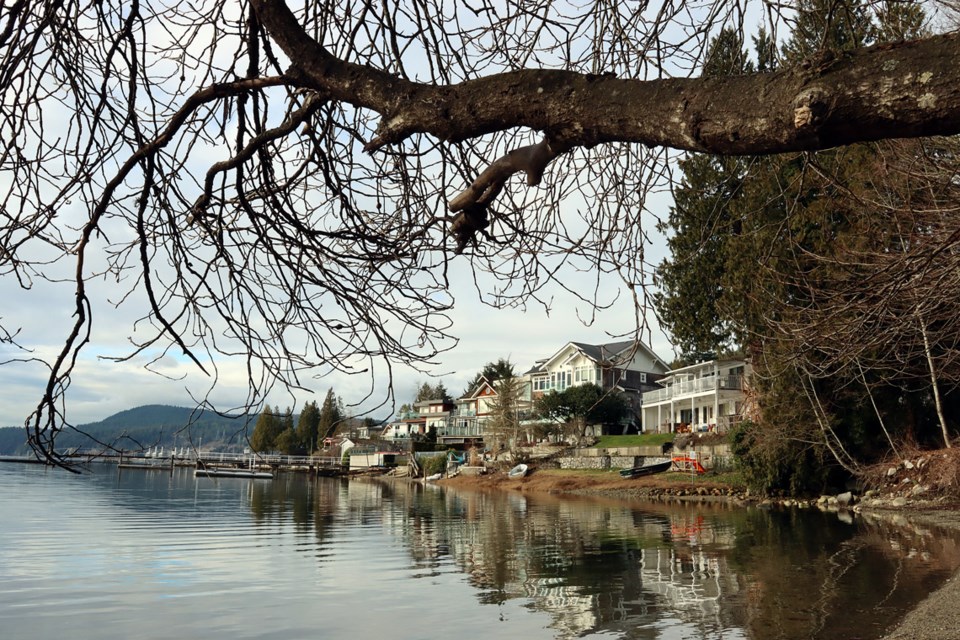Port Moody’s climate action plan to help reduce greenhouse gases is progressing.
But the heavy lifting — and expense — is still to come, says the city’s senior sustainability and energy coordinator.
Tuesday, Laura Sampliner told a meeting of council’s committee of the whole that midway through the first phase of its 10-year plan to reduce greenhouse gas emissions by 40 per cent from their levels in 2007, a four per cent reduction overall has already been realized, and 20 of 23 actions to be implemented before the end of this year have been initiated.
But, Sampliner added, most of those have been about gathering information and developing strategies.
Some of the actions in the first phase include:
- auditing the energy levels of civic buildings
- developing an extreme weather response plan
- creating a management strategy for the city’s urban forest
- devising standards for climate-resilient landscaping on public land
“Phase One is really an enabling stage to understand what is required to make the plan happen,” Sampliner said.
The second phase of the plan, from 2023 to 2025, will be much more intensive, with a significant focus on the city’s infrastructure.
That won’t be cheap, Sampliner cautioned, as it could involve programs like rebates to building owners who take steps to reduce their greenhouse gas emissions.
She said the city will be aggressive in pursuing any funding opportunities from senior levels of government.
Coun. Amy Lubik said the city can’t afford not to continue pressing forward despite the expense.
“There’s a lot of retrofitting that needs to be done,” she said, adding the extreme weather events of the past year, like last summer’s heat dome and the torrential rains that swamped much of the province and destroyed key highway connections in November have highlighted the need for climate change to be addressed.
Sampliner agreed, stating in her report to council, “With the events of 2021, ranging from an intense wildfire season, extreme heat, atmospheric rivers, to closing the year with extreme cold, climate resilience is essential for communities.”
But at least two councillors saw different paths to achieving carbon reductions.
Coun. Hunter Madsen said densifying the city around its SkyTrain stations likely won’t achieve significant gains in the battle against rising greenhouse gases because many of those new residents will continue to use their cars.
He suggested the better way is to create more opportunities for those residents to be able to work and play right in their neighbourhoods by diversifying the city’s growth to create more job opportunities.
“Really, the right solution is to stick to the city’s live-work-play vision,” he said.
But Coun. Meghan Lahti, who chairs Port Moody’s climate action committee, said dense transit-oriented development is a proven tool to address climate change, while also working to ease the housing crunch.
“Compact, mixed-use development around transit has the potential to reduce greenhouse gases,” she said. “It’s not the only answer, but it certainly is one part of the solution.”
The city’s climate action plan was adopted by council in July 2020. Among its 18 goals are:
- all new and replacement heating and hot water systems to be zero emission by 2030
- all oil and propane heading and hot water systems to be replaced by zero emission systems by 2030
- all buildings to have zero emission heating and hot water systems by 2050
- 40 per cent of passenger vehicles and 25 per cent of commercial vehicles are electric by 2030
- minimize waste going to landfills and achieve zero emissions from waste by 2050
The plan will be reviewed and renewed in 2025.



